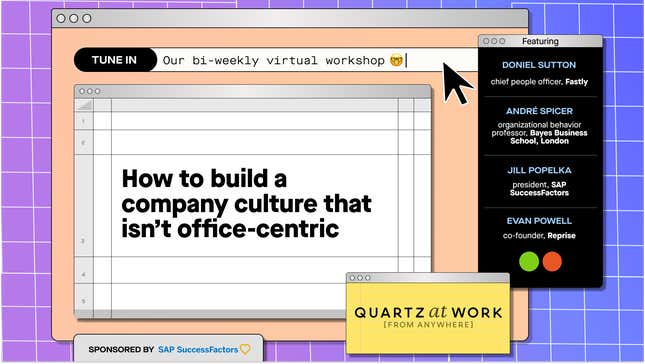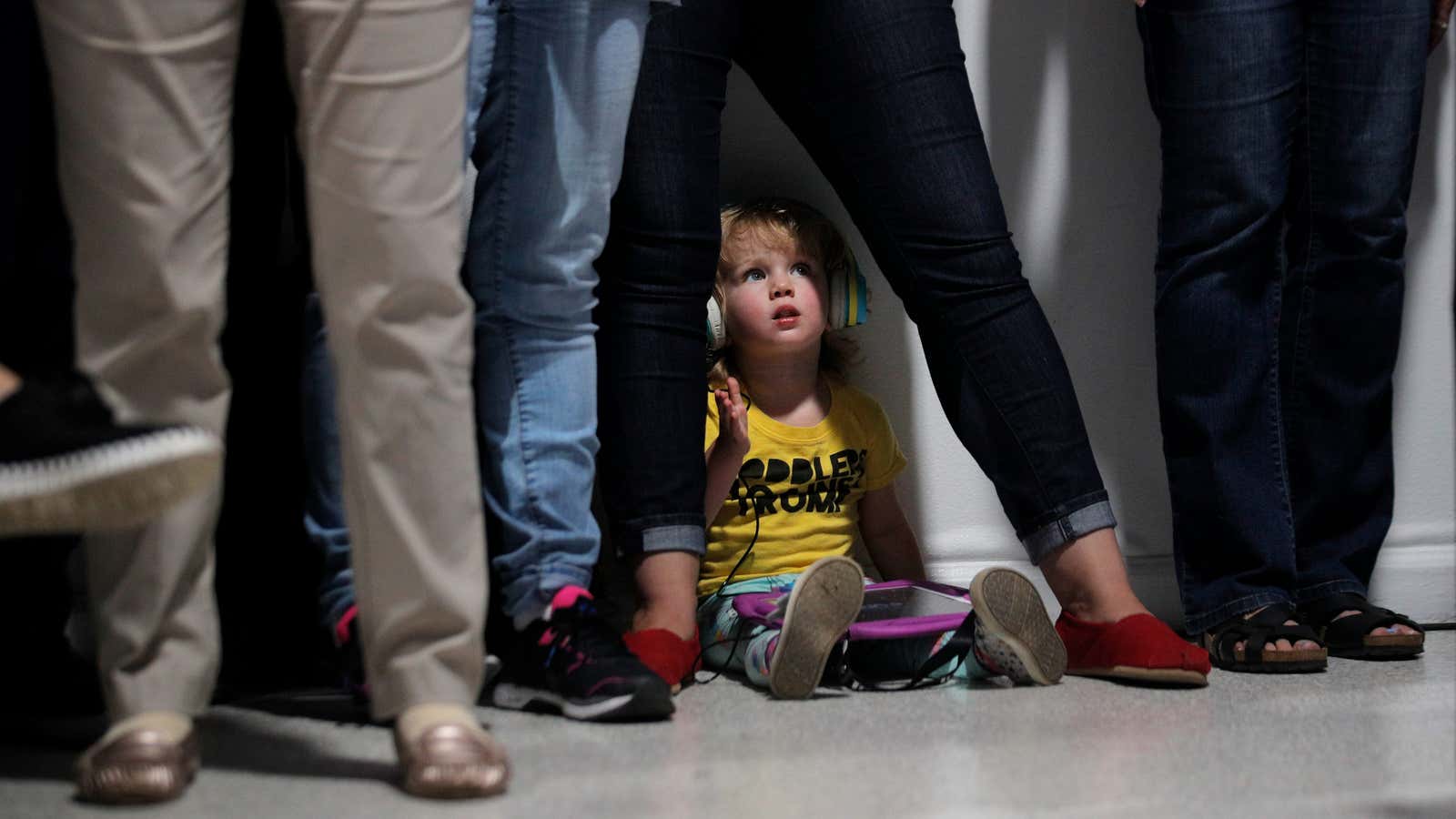To modern workers everywhere,
The Biden administration’s plan for supporting families was never particularly ambitious. Twelve weeks of paid leave for new parents is, by global standards, modest. But even that proposal was whittled down to four weeks and eventually scrapped. Campaigners grow weary of noting that the US is alone among rich countries in offering no such leave. It seems, for the moment, that painful status quo will persist.
And it is painful—the sign of a system built not for human thriving, but for service to corporations. Fundamentally, any country or firm’s parental leave policy is a testament to their values: What’s more important, the individual or the company?
Maybe there are some Americans who love their work so much they want to bounce straight back to it from the major convalescence involved in birth, or from the life-changing addition of a helpless human to their family. But for most, love of work—or imperative to earn, or both—will at this moment tangle ferociously with a host of other loves and other imperatives, in an acute moment that might be summed up: “How the f*** am I supposed to make this work?” That moment isn’t a sign of weakness, lack of planning, or bad luck. It’s the apex of a shared problem that needs a solution—even if that solution is complex.
I recently came back from a year of maternity leave, the UK norm. The second half of that leave was one of the hardest times of my life. Caring for small children is difficult, in a pandemic it’s much more difficult, and during that period my family undertook two moves which compounded the problems we already faced, like lack of support or structure. I missed my work and colleagues, the sense of purpose and appreciation they provide me. I felt my sense of self falter.
The reality is that perfect work-life balance may be almost impossible to achieve. Because what I gained in that year of focus on my baby is also immeasurable: Manifold moments of delight, forming the foundation of a relationship that will last, I hope, until I die.
What’s certain is that far too many people in the US have no balance at all. Until it achieves some, it will be failing its parents—particularly mothers—its children, and the test of its humanity. — Cassie Werber
Tell us what you think
How much is the right amount of parental leave, and why? Which countries and companies are getting it right? Drop us a line:
Five things we learned this week
Elon Musk’s sense of humor landed badly. The Space X CEO left followers confused and upset when his tweet about starting a university turned out to be a boob joke.
A Great Retirement may be accompanying the Great Resignation. Three million Baby Boomers have left the US workforce since Covid-19 struck.
The PR industry is owning up to its role in climate change. Vocal critics within the sector are pointing out how much agencies help greenwash and distract from disasters.
Employee retention is “back.” Labor market shortages are one new reason companies are keen to hang on to good staff.
…And the healthcare trap is suppressing attrition. A third of surveyed Americans say they would be likely or somewhat likely to quit their job if healthcare benefits weren’t at stake.
Workshop Recap

Company culture doesn’t have a physical address—it consists of everything from perks and training and performance reviews to how coworkers greet one another each day. On Oct. 28, Quartz held a workshop on how to create a company culture that’s not tethered to the office. Among the top tips: hold “listening circles” to get a sense of what employees want, and create rituals to promote learning and collaboration.
Quartz members can access the replay and a more detailed recap of the workshop here.
Not yet a Quartz member? Sign up now for a 7-day free trial.
30-second case study
Back in her 20s and in a new job, Quartz at Work reporter Sarah Todd realized she’d made a huge mistake. The new role, in a new city, wasn’t going to offer her the interesting daily work or future career progression she’d hoped for. She missed the job she’d recently quit, but the shame of potential rejection‚ and the sense that she’d made a poor decision, were barriers to asking for it back.
Ultimately, though, that’s what she did. Her former managers were receptive: “No one at my old job was as hard on me as I’d been on myself. I returned, and wound up staying there for two years,” she writes.
The Great Resignation may well lead to a higher-than-average quotient of “boomerang” employees in the coming years. People who left the workforce for difficult personal projects might miss their former security, or simply realize that what was making them unhappy wasn’t so much their job as the experience of working through a global pandemic. Burnout sufferers may well find that time off solves some of the issues they experienced at work, making returning an attractive possibility.
Gathering the wisdom of her own experience and other thinking from managers, and including a template email for reference, Sarah suggests a set of practical steps anyone wanting to ask for their old job back might take, including emphasizing the benefits that re-employing a trained and experienced former worker could bring to a company over someone untested.
The takeaway: The shame associated with admitting you’ve made a mistake is a big obstacle, but no one is likely to feel it as acutely as you do. Employers in a tight labor market should welcome returning employees, and many say they would.
Words of wisdom
“One of the bigger strategic changes that companies are going to have to make, is to make knowledge more formalized and make processes more formalized, so that you don’t need to rely on oral tradition at the company in order to pass down key knowledge. They’ll rely less on PowerPoint culture and more on written culture.” —Adam Ozimek, a labor economist at the freelancing platform Upwork, on how remote work is changing the way companies do business.
ICYMI
When it comes to grand workplace fails, Amazon has an unenviable track record. But recent revelations are still shocking. The New York Times reports on how a series of software glitches impacted vulnerable workers on leave, leading some to miss paychecks and others to get erroneously fired. America’s second-largest employer, with a growing staff of 1.3 million, the giant company has come in for particular criticism because the failure to care for its own staff coincided with the heyday of its profitability.
You got The Memo!
Our best wishes for a sound and creative week. Send any workplace news and obsolete PowerPoints to work@qz.com. Get the most out of Quartz by downloading our app and becoming a member. This week’s edition of The Memo was produced by Cassie Werber and Sarah Todd.
